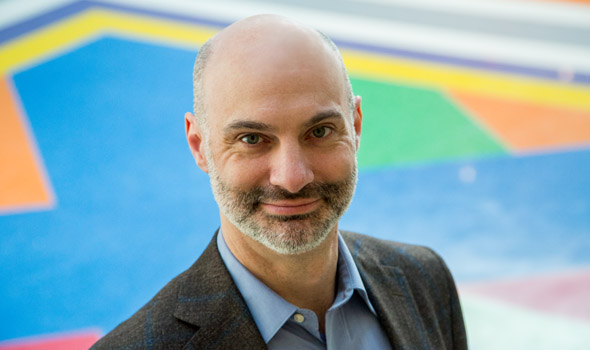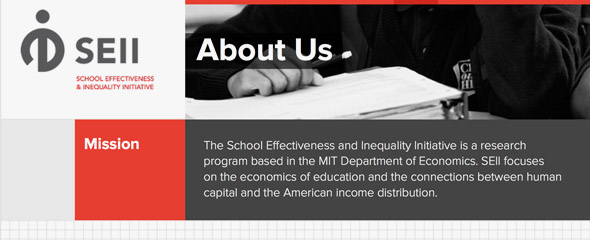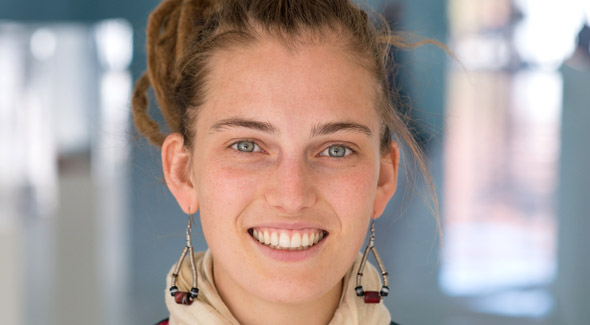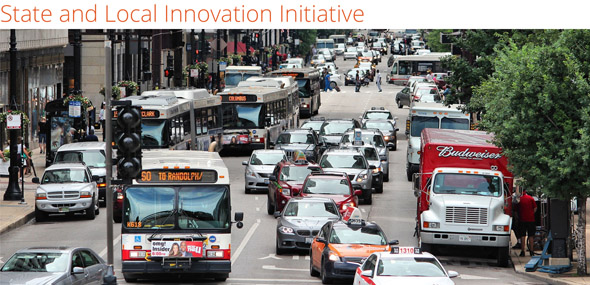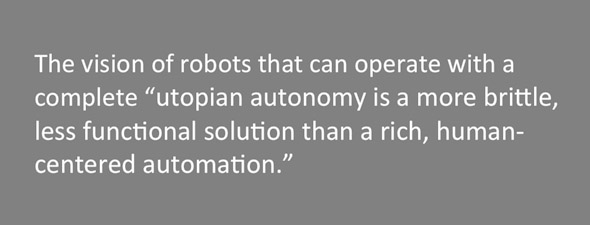Said and Done
February 2016 Edition
Published by the Office of the Dean
MIT School of Humanities, Arts, and Social Sciences

QUOTABLE
“Agustín is a brilliant and caring person and deeply understands the value of community. He brings an enthusiasm and sincerity to his engagement with others that will enrich the School. His commitment to diversity is broad and deep, and I know he will make a difference.”
— Sally Haslanger, Ford Professor of Philosophy at MIT
LEADERSHIP
Agustín Rayo, Professor of Philosophy, named Associate Dean of MIT-SHASS
Agustín Rayo PhD ‘01, a professor of philosophy with deep roots in the MIT community, has been named Associate Dean for the School of Humanities, Arts and Social Sciences. Rayo is well known for his ideas on language and logic, captured in his book, The Construction of Logical Space (Oxford University Press, 2013), and in many papers, including the award-winning “Vague Representation" (Mind, 2008).
Aside from a few early posts, Rayo has devoted his academic career to MIT, in a philosophy department where his colleagues include Vann McGee, Robert Stalnaker, and Stephen Yablo, all of whom served as mentors during his graduate years. “MIT changed my life,” he says. “I felt immediately that it was where nerds like me belonged.”
“It’s been very important to be in a department where people treat each other with respect, give each other the benefit of the doubt, and really work together,” says Rayo. “The word family comes to mind, and it’s my aspiration to implement some version of this in my new role.”
HONORS AND AWARDS
RESEARCH FUNDING
MIT-SHASS Research Fund recipients announced for 2016
The MIT-SHASS Research Fund supports humanities, arts, and social science research that shows promise of making an important contribution to the proposed area of activity. The School is pleased to announce ten recipients for 2016.
Story by SHASS Communications
MUSIC
Evan Ziporyn named one of the most intriguing musicians of 2016
Ziporyn is a professor of music at MIT and the faculty director of MIT’s Center for Art, Science & Technology (CAST), an organization "that takes an expansive view of musical culture in the 21st century. Ziporyn exemplifies that bridge-building in his own projects, which break down the divide between West and East, classical and vernacular, academic and grassroots."
Story at The Daily Beast | Ziporyn website | MIT CAST
CENTER FOR INTERNATIONAL STUDIES
MISTI Global Seed Funds winners announced
The MISTI GSF program has awarded $2 million+ to faculty across the Institute, enabling participating teams to partner with international peers to develop and launch joint projects. Created and led by SHASS faculty, MISTI is MIT's flagship international education program.
Story by Caroline Knox
SCIENCE WRITING
Thomas Levenson receives the 2016 Levitan Prize in the Humanities
Levenson, professor of science writing and director of MIT’s Graduate Program in Science Writing, has been awarded the $30,000 research grant, which will support his investigation into the economic, cultural, and scientific history of an 18th century financial crisis known as the South Sea Bubble.
Story by SHASS Communications
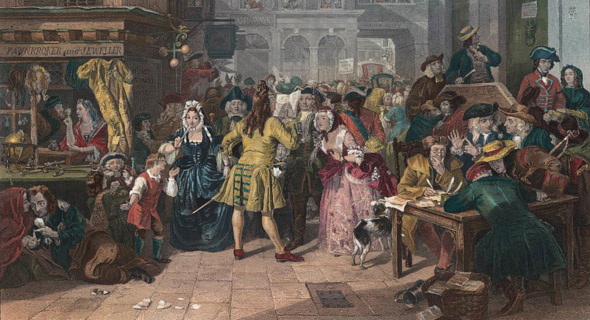
Hogarthian image of the 1720 "South Sea Bubble," painted by Edward Matthew Ward;
Tate Gallery. (Public domain)
The prize will support Levenson’s research for a new book focused on the South Sea Bubble of 1720 — and what that financial crisis reveals about the deep connections between scientific developments and their larger social consequences.
RESEARCH
POLITICAL SCIENCE
A cleaner ballot box | Daniel Hidalgo
An effort to clean up local elections in Brazil has yielded new evidence about the prevalence of “voter buying” in one of the world’s largest democracies.
Story by Peter Dizikes at MIT News
ECONOMICS | EDUCATION
Assessing school-choice systems | Parag Pathak
A new paper co-authored by Pathak, MIT professor of economics, on school-choice systems designed to aid low-income children, finds that while parents like these programs “they often do little for their children’s test scores.”
Story at The Economist | School Effectiveness and Inclusion Initiative
ECONOMICS | EDUCATION
More hope than fear in our data | Joshua Angrist
"In the 21st-century, administrations from both parties expanded the federal role in education, encouraging reform and experimentation to an unprecedented degree. These policy explorations have been extraordinarily fruitful, yielding findings that are as clear and convincing as any in the history of social science. The most important of these findings is my reason for hope."
More | School Effectiveness and Inclusion Initiative
The School Effectiveness and Inequality Initiative is a research program based in the MIT-SHASS Department of Economics. Led by Joshua Angrist, David Autor, and Parag Pathak, with a team of 21 colleagues, SEII focuses on the economics of education and the connections between human capital and the American income distribution.
ECONOMICS
Trade in the balance | David Autor
Autor, an MIT professor of economics, David Dorn of the University of Zurich, and Gordon Hanson of the University of California provide evidence that workers in the rich world have suffered more from the rise of China than economists thought was possible.
Article at The Economist
POVERTY ACTION LAB | EDUCATION
Government of Andhra Pradesh to scale up “Teaching at the Right Level”
A three year partnership aims to improve basic reading and numeracy skills in primary schools by re-organizing children according to ability instead of age or grade, and by providing focused, tailored instruction. The program will reach over 56,000 students.
Full story at JPAL
ANTHROPOLOGY | THE ANTHROPOCENE
Melt: Theorizing the Contemporary | Stefan Helmreich
A contribution for the series "Lexicon for an Anthropocene Yet Unseen," in Cultural Anthropology. Helmreich shows how sound provides an unexpected way into apprehending developments in the Anthropocene.
Helmreich contribution | About the Series
FEATURE
Introducing The Human Factor series
Solving the economic, cultural, and political dimensions of major global challenges
The Human Factor series highlights research and perspectives on the human dimensions of global challenges. Contributors describe humanities, arts, and social science research that generates social innovation, and share ideas for cultivating the sociotechnical collaborations needed to solve the major issues of our time.
Browse the Series
FEATURE | STUDENT HONORS AND RESEARCH
STEM + SHASS
35 exceptional MIT students named Burchard Scholars for 2016
The award honors MIT sophomores and juniors who demonstrate academic excellence in the humanities, arts, and social sciences, as well as in science and engineering. Selection is extremely competitive, and many past winners have gone on to receive Rhodes, Marshall, and Truman scholarships and fellowships.
Story by SHASS Communications
ECONOMICS | HEALTH
Can we fight addiction to opiods without causing pain? | Angela Kilby
An article at The Boston Globe on the Massachusetts opioid crisis cites research by MIT-SHASS Economics PhD candidate Angela Kilby, who “measured the impact of prescription monitoring programs across the country” and “found that they save about 1,000 lives per year.”
Story at The Boston Globe

MIT doctoral students, L to R: Malinda McPherson, Musician, and Bioscience and Technology; Angela Kirby, Economics; and Nick Hagerty, Economics
MUSIC AND THE BRAIN
Impact of emotion on the brain's creativity network | Malinda McPherson
McPherson's study, published in the journal Nature, shows that the neural substrates of creativity are significantly altered when artists are actively attempting to express emotions. A doctoral student in the Program in Speech and Hearing Bioscience and Technology, McPherson is also a violist who has studied with Institute Professor of Music Marcus Thompson.
Story | Research in Nature | Related Video: The Science of How Music Benefits the Brain
POLITICAL SCIENCE | CLIMATE
What was it like to be at the Paris climate talks? | Joseff Kolman
MIT Political Science and Physics major Kolman describes his experiences at the recent COP21 talks and his thoughts on the atmosphere and elements of the negotiations that combined for a successful outcome.
Story at MIT News
ECONOMICS | POLLUTION AND HEALTH
MIT economics students test projects to reduce pollution | Nick Hagerty, Ariel Zucker
In India, industrial development and rapid urbanization have far outpaced efforts to protect the environment, resulting in levels of air and water pollution that pose major threats to human health. Working in collaboration with the MIT Tata Center, two MIT-SHASS economics doctoral students, Ariel Zucker and Nick Hagerty, are addressing this challenge by generating incentives for polluters to change their ways.
Story by SHASS Communications
"Even when you have great technology, you need some incentive for people to reduce pollution. We need to find ways to make the benefit of reducing pollution felt by the ones who are paying the cost of reducing pollution."
— Ariel Zucker, MIT PhD candidate, Economics
FEATURE | BLACK HISTORY MONTH 2016 | BlackHistory365
Sampler
MIT Research and Education on African American and African Diaspora Studies
Browse the collection

Detail, exterior of the National Museum of African American History and Culture; Architect, David Adjaya; photograph by Jason Rosenberg
"One thing that makes MIT different from other places: It’s not at all an absurd thing for us to think, ‘There’s a problem here; let’s do something about it.'"
— Kevin Richardson, MIT doctoral candidate in philosophy, and a leader in the "Philosophy in an Inclusive Key" program
NEW SHASS PUBLICATIONS
HISTORY
MIT History launches a social media channel
At MIT, we look to the future, and to do that well, we need to know where we've been. MIT's historians examine nearly the entire range of human experience, providing perspective on the present and insight for the future.
MIT History Facebook page | Website
DEVELOPMENT ECONOMICS
Abdul Latif Jameel Poverty Action Lab launches a new website
J-PAL research and data on poverty alleviation are easier than ever to access and interpret.
New website | JPAL Newsletter
J-PAL North America launches website, blog, social media
J-PAL North America has launched a Twitter feed, a Facebook page, and a blog — tools to provide additional ways of communicating with policymakers, researchers, and other stakeholders. Visit the channels to see highlights of J-PAL NA projects including: the State & Local Innovation Initiative, Health Care Delivery Initiative, and General Research Initiative.
Full announcement
The J-PAL State and Local Innovation Initiative supports U.S. state and local leaders in using randomized evaluations to generate new and widely applicable lessons about which programs work, which work best, and why. State and local leaders are invited to submit a letter of interest by February 16, 2016. More
IN THE MEDIA
SHASS In the Media | February 2016
For more of the many recent media stories about SHASS research and faculty, visit the complete
In the Media section
ECONOMICS | HEALTHCARE AND PHARMACEUTICAL PRICES
Even talking about reducing drug prices can reduce drug prices | Sara Ellison
Research by MIT economist Sara Fisher Ellison is cited by this New York Times article on drug pricing rhetoric in the presidential campaign. Ellison and her colleague “found evidence that pharmaceutical companies reduce growth in drug prices in response to political pressure.”
Story at the New York Times
SCIENCE, TECHNOLOGY, AND SOCIETY
Who ultimately will have the upper hand: machines or humans? | David Mindell
The Washington Post discusses STS Professor David Mindell’s new book, Our Robots, Our Selves: “Mindell clearly demonstrates that the efforts of people and robots can be complementary and inextricably entangled, and can evolve together.”
Story at The Washington Post | Related Story: Robots and Us
HEALTH ECONOMICS
Are we fighting cancer the right way? | Heidi Williams
Heidi Williams is an assistant economics professor at MIT. "If you look at drugs that get approved by the FDA, they all tend to be for very late stage cancer patients — patients that are very close to the end of their life, who live one month longer than they would have." Williams proposes policies that would spur more preventative and early-stage cancer treatments.
Story at BBC News
ECONOMICS | LABOR, TRADE, AND ECONOMIC EQUITY
What would it mean to 'Beat China' on Trade? | David Autor
A new working paper from the economists David Autor, David Dorn, and Gordon Hanson argues that trade with China is having persistent, negative effects on parts of the American labor market.
Story at The New York Times
ECONOMICS | GENDER GAP IN EDUCATION
The serious reason boys do worse than girls | David Autor, Melanie Wassermann
Jeff Guo at The Washington Post explores the Gender gap in educational success, citing recent research co-authored by MIT economists David Autor and Melanie Wasserman. “In their preliminary research, they have found that … Girls from disadvantaged backgrounds are much more likely to succeed than boys raised under the same circumstances.”
Story at The Washington Post
MUSIC
MIT honors David Bowie with an orchestral tribute concert
Presented by MIT Music and Theater Arts in collaboration with Orange Mountain Music and Richard Guérin. "The concert — organized and conducted by MIT Professor of Music Evan Ziporyn, with proceeds benefiting MIT cancer research — was an excellent wake: heartfelt, celebratory, just freewheeling enough."
Reviews: The Boston Music Intelligencer | The Boston Globe | Nick Johnston
Video of Let's Dance | Audio of full concert | Interview: Evan Ziporyn on Bowie
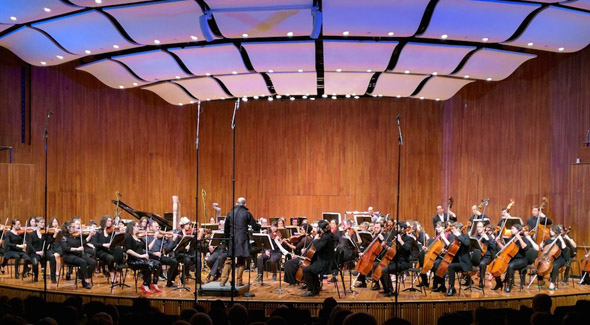
photograph by Nick Johnston
"The encore, a rendition of 'Let's Dance' reminded us all of the joy that Bowie brought into the world."
STAY IN TOUCH
SHASS stories on MIT News
Bookmark this page
MIT SHASS social media
Facebook | Twitter
MIT-SHASS Publications Directory
Online portal to all MIT-SHASS publications
Said and Done is a publication of SHASS Communications
Office of the Dean, MIT School of Humanities, Arts, and Social Sciences
Editor, Designer: Emily Hiestand
Publication Associate: Daniel Pritchard
Published February 9, 2016
About the MIT School of Humanities, Arts, and Social Sciences
MIT champions the power of STEM + SHASS for research and for educating great engineers, scientists, scholars, and citizens.
Meeting great challenges — Generating solutions for the great challenges of our age requires both advanced technical and scientific knowledge and a deep understanding of the world's human complexities. MIT-SHASS researches and advances the cultural, political, and economic dimensions of innovation — the broad range of human realities, from deeply-felt cultural traditions to building codes to political tensions, in which science and technology issues are embedded.
Excellence — In 2015, MIT's Social Science disciplines were ranked first in the world, and MIT's Humanities and Arts disciplines were ranked among the top three worldwide.
Research with a global impact — The MIT-SHASS research portfolio includes anthropology, comparative media studies, economics, history, international studies, languages, linguistics, literature, music and theater arts, political science, philosophy, security studies, and writing, including science writing.
Education that empowers — The School teaches every MIT undergraduate, empowering students with cultural and historical perspectives, and critical thinking and communication skills — to help them serve the world wisely and well. The School's seven graduate programs are recognized as among the finest in the world.
Cultivating leaders — SHASS has a central role in international education at MIT, and in preparing students for leadership. Through all their SHASS coursework, and in MISTI, the School's pioneering applied international education program, MIT students learn how to work, collaborate, and thrive in cultures around the globe.
